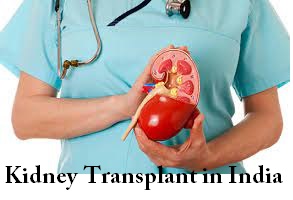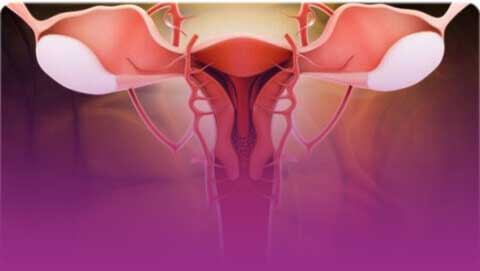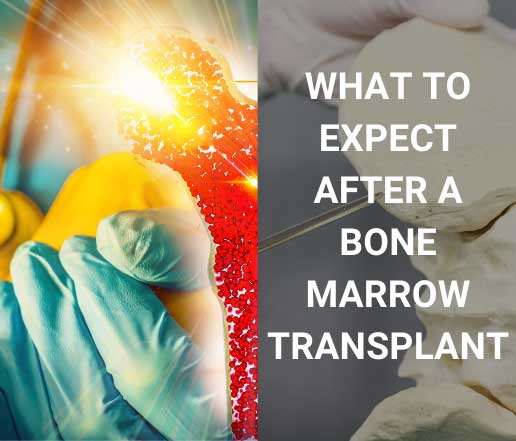
What is Bone marrow transplant and what to expect after it ?
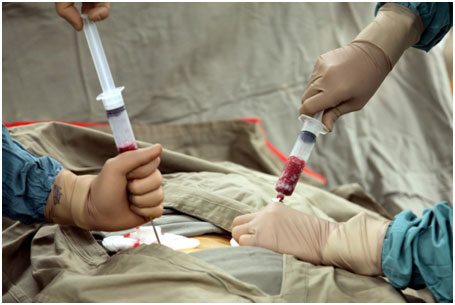 spine, hip and shoulder bones, ribs, breastbones, and skull. This gelatinous tissue produces red blood cells, platelets, and white blood cells, thus it plays an important part in the body’s immune system.
spine, hip and shoulder bones, ribs, breastbones, and skull. This gelatinous tissue produces red blood cells, platelets, and white blood cells, thus it plays an important part in the body’s immune system.
A bone marrow transplant is a medical procedure performed to replace bone marrow that has been damaged or destroyed by disease, infection, or chemotherapy. This procedure involves transplanting blood stem cells, which travel to the bone marrow where they produce new blood cells and promote the growth of new marrow.
Transplants can also be hard emotionally. They often require being in the hospital, being isolated, and there’s a high risk of side effects. Many of the effects are short-term, but some problems can go on for years. This can mean changes in the way you live your life. For some people, it’s just for a while, but for others, the changes may be lifelong. Some of the side effects are really unpleasant and can be serious. Your cancer care team will do everything they can to make you comfortable, but some of the side effects may not be completely controlled or relieved.
Feeling tired and run down:

The major reason behind being tired is due to the low red blood cell counts. You might need a blood transfusion which will make you feel better in no time. At times people are allergic to blood transfusion, any uneasy feeling is to be informed to the team or nurse at the earliest so that they can stop the infusion and take necessary steps.
- You will feel very tired and run down after your transplant. This will be at its worst during the second and third week when your blood cell counts are at their lowest.
- Slowly you will feel that you have more energy. But you will feel more tired than usual for quite a long time after your transplant. This could last for up to a couple of years.
Risk of infections:
After getting the transplant done your body becomes prone to bacterial attacks due to less number of white blood cells within the blood. Even normal bacteria can become a dangerous risk to life.
To avoid this one must adapt:
- A hygienic lifestyle.
- Taking a regular check about the wounded area.
- Consulting your doctor whenever required, hesitating to let your doctor know about your current situation can be fatal.
At the time the infections can be very serious and your doctor may give you a high dosage of antibiotics to withstand the situation till your white blood cell count become normal. As the day passes you may notice that the dosage will vary, it may get stronger or it can also get reduced according to the behavior of your body in respect to the medicine.
Bleeding:
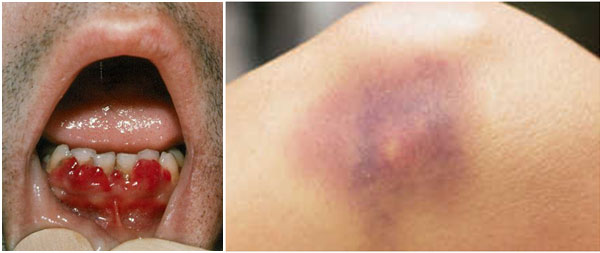 The treatment destroys the body’s ability to make platelets thus increasing the chances of bleeding. Platelets are the cells that help to clot blood. This condition may stay for several weeks after the transplant has taken place. As the body loses its ability to clot blood, you may notice more bruises over your body. It is best to avoid injury at this time.
The treatment destroys the body’s ability to make platelets thus increasing the chances of bleeding. Platelets are the cells that help to clot blood. This condition may stay for several weeks after the transplant has taken place. As the body loses its ability to clot blood, you may notice more bruises over your body. It is best to avoid injury at this time.
You may notice:
- Nasal bleeding.
- Gum bleeding while brushing your teeth.
- Heavy flow during menstrual days.
- Red or small bruise spots over the body.
If the situation goes bad from usual you may be required to undergo a platelet transfusion. It takes half an hour to be done. Another major thing to be noted is that the time required to make the count normal depends on the donor’s stem cell. It takes more time if the stem cell is your rather than getting it donated from someone else.
Lack of immunity:
After a transplant you lose immunity to diseases you were vaccinated against as a child. Your transplant team will let you know which vaccinations you need to have again after your treatment. It’s important that all your family have the flu vaccine. More importantly it is advised to be in less contact with people which will eventually lower the risk of getting a contaminated disease.
Being infertile:
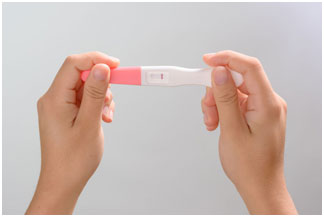 A long time side effect of the treatment is being infertile (i.e. being unable to produce offspring naturally). This is mainly caused due to the high dosage of chemotherapy.
A long time side effect of the treatment is being infertile (i.e. being unable to produce offspring naturally). This is mainly caused due to the high dosage of chemotherapy.
- Usually it’s a very rare scenario where a man can give birth naturally after the process but it is sometimes possible to store their sperm before they start their chemotherapy.
- Women may face early menopause due to the treatment. One might undergo HRT (hormone replacement therapy) to help with the symptoms. Some women may store embryos before starting the treatment but the chances of this is very less.
To get the best price, Book your appointment at : +91-9643443814
For fast track query reply, Email us at : care@alafiyameditour.com



